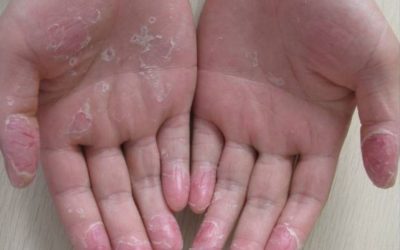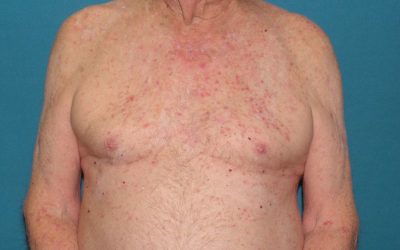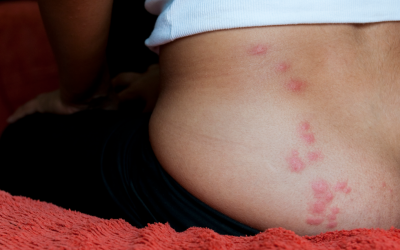Peeling skin syndrome
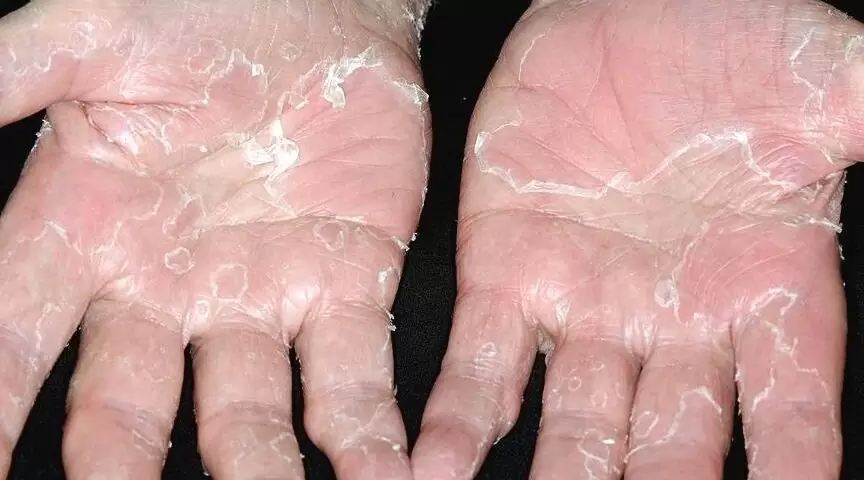
- the disease appears from birth or in the first year of life
- lasts a lifetime
- a very rare disease that, according to available data, affects men and women equally
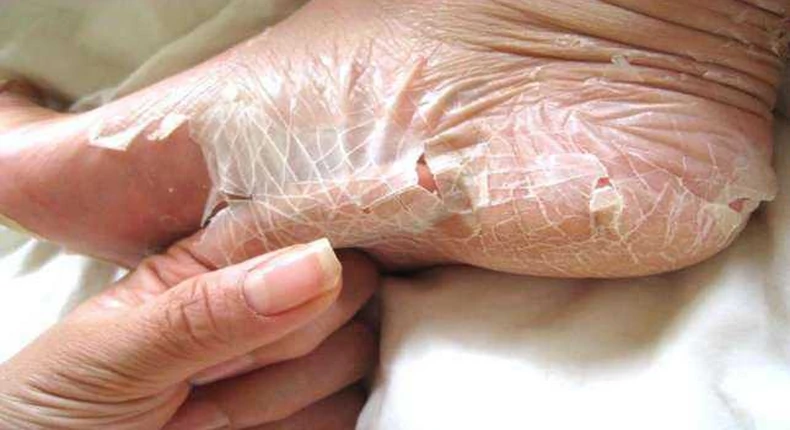
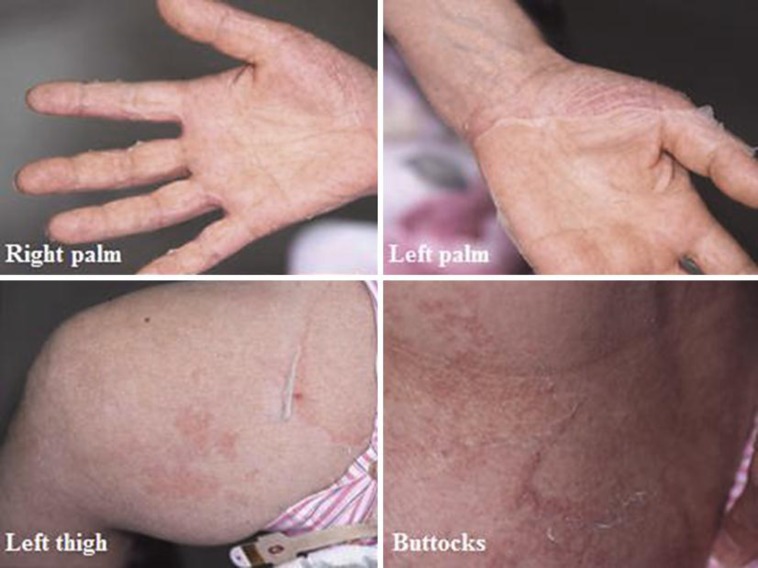
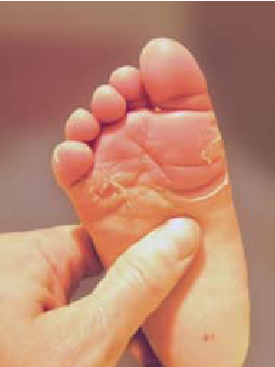
It occurs most often:
- constant skin peeling, flaking
- there is no soreness or unpleasant sensations when peeling the skin
- the skin is dry
- the skin may become scaly, reminiscent of fish skin
- peeling can be triggered by sunburn, sweat, mechanical damage, etc
Localization
possible skin changes on the whole body or only on the extremities
- in the case of a widespread form in the newborn, other immune system and metabolic disorders often appear together, which often results in the patients not surviving
- in the case of a localized form, the lesions can be of very different degrees, so some affected individuals remain undiagnosed
other related changes:
- short height
- disturbed puberty
Diagnostics
Patient survey and examination data are very important for diagnosis. However, a skin biopsy is required to confirm the diagnosis, and blood and urine tests can also help.
Treatment
The Dermatologist tailors a personalized care approach for each individual. This includes broad strategies like safeguarding the skin from harm or irritation.
The treatment may involve a range of hydrating lotions, topical applications that aid in skin renewal, oral medications to support skin health, and occasionally, treatments to manage allergic reactions.

Keratolysis Exfoliativa: Causes, Symptoms, and Treatment for Skin Peeling
Keratolysis exfoliativa is a skin condition that causes painless peeling, often affecting the palms and soles. Managing this condition involves proper skin care and moisturizing treatments to reduce peeling and improve skin health.
Heat Rash: Causes, Symptoms, and Effective Treatment
Heat rash, also known as prickly heat, occurs when sweat gets trapped in the skin, leading to small red bumps and itching. It’s common in hot weather and can be treated with cooling measures and proper skin care to reduce discomfort.
Insect Bites: Symptoms, Treatment, and Prevention Tips
Insect bites can cause itching, swelling, and irritation. Proper treatment helps reduce discomfort and prevent infections. Learn how to identify insect bites, manage symptoms, and protect your skin from future bites.


